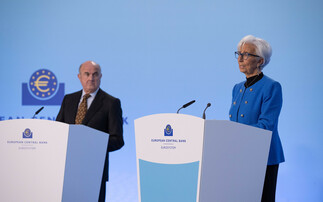Stuart Thomson, chief market economist at Ignis Asset Management, explains how Europe's peripheral economies could plunge the eurozone into a new crisis.
This year, French President Francois Hollande declared the end of the European sovereign debt crisis. Meanwhile, the European Central Bank signalled that rates are on hold because it believes Europe’s prolonged recession is over. It also believes the economy will gradually recover over the remainder of the year and continue a gentle acceleration through 2014. Is President Hollande correct? Has Mario Draghi’s commitment to do “whatever it takes to save the euro” really eliminated the downside risk of holding peripheral sovereign debt? Has the resulting rally in spreads improved f...
To continue reading this article...
Join Investment Week for free
- Unlimited access to real-time news, analysis and opinion from the investment industry, including the Sustainable Hub covering fund news from the ESG space
- Get ahead of regulatory and technological changes affecting fund management
- Important and breaking news stories selected by the editors delivered straight to your inbox each day
- Weekly members-only newsletter with exclusive opinion pieces from leading industry experts
- Be the first to hear about our extensive events schedule and awards programmes








